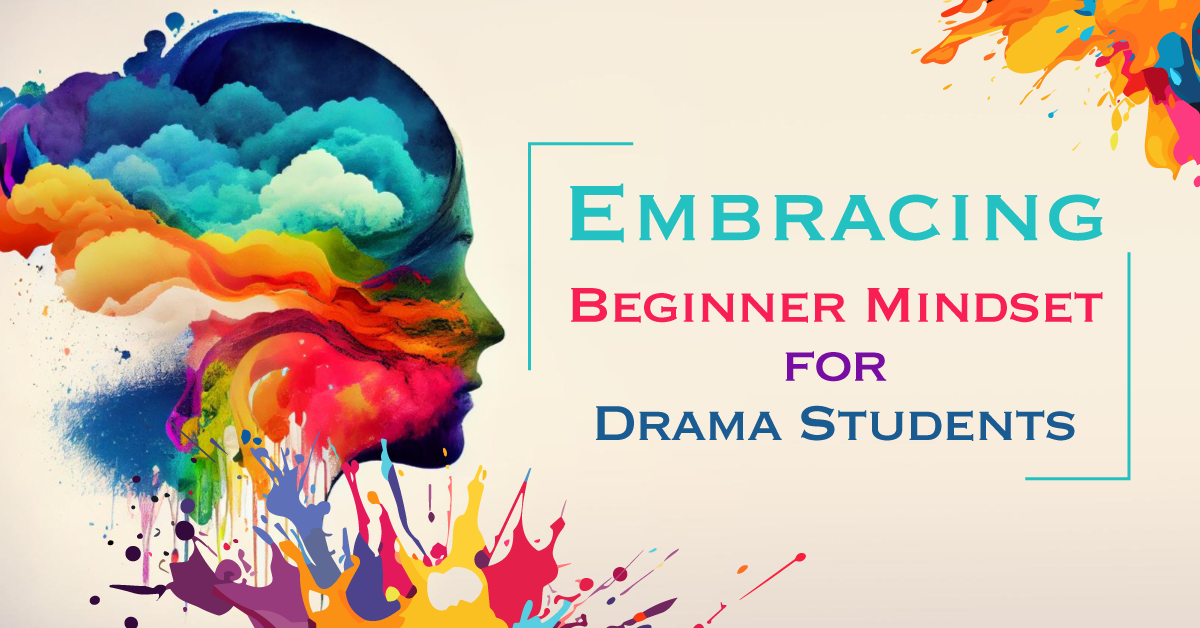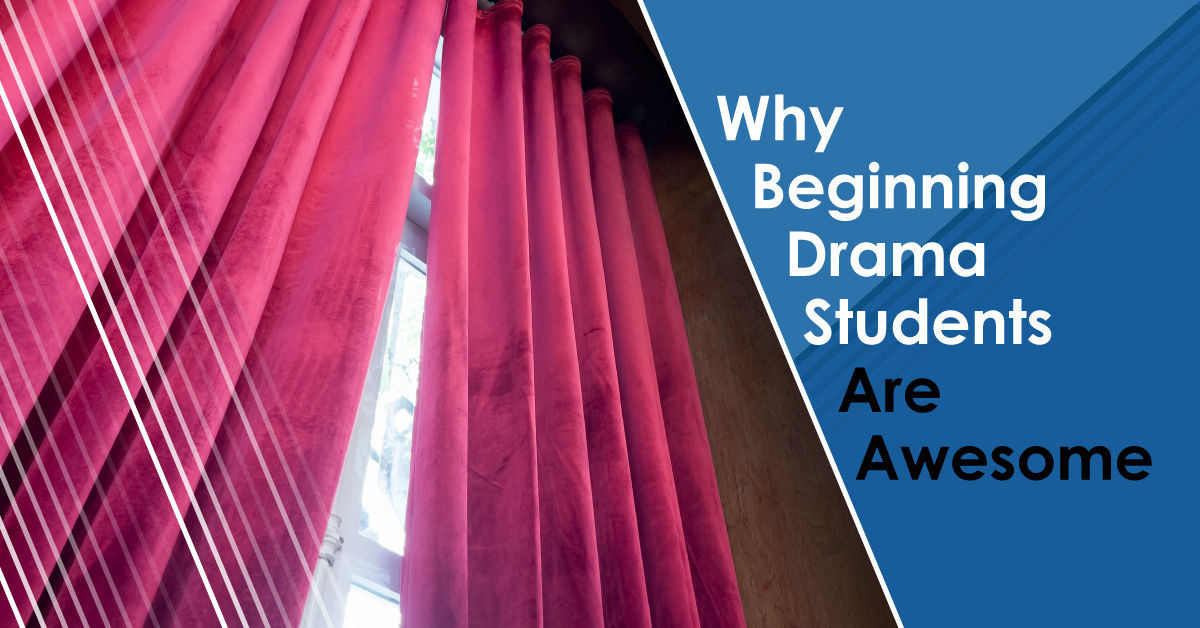Embracing Beginner Mindset for Drama Students
Do your students ever struggle with exploring new concepts and putting themselves out there in drama class? Do they try to sit out of exercises, saying things like “I suck at this” or “I can’t do this, I feel stupid”? You’ll also notice that some students will give one attempt and feel that that’s enough — “I’ve done it once, I’ve got this, let’s move on,” despite them clearly not having given a decent effort. Or you might have students who make an attempt at a new idea or concept, stress out because they can’t do it perfectly the first time, and give up. Either way, it’s frustrating for you and for your students. Drama class is supposed to be a safe place to learn and explore, yet many students go into class expecting the worst. They worry about looking silly in front of their peers, they stress about getting good grades, or they’re so busy trying to fit in and be cool that it’s easier to just not try.
Let’s try reframing the drama classroom experience. Drama class is the perfect place to embrace “beginner mindset.” Beginner mindset is looking at things with fresh eyes and an open mind. Beginner mindset is knowing mistakes are going to happen and even looking forward to them because mistakes are amazing learning opportunities. Beginner mindset is leaving expectations, preconceived notions, and ego at the door and entering the room ready to just try and see what happens. And it’s actually way less pressure — the whole point of beginner mindset is that it’s OK to not know something! How can we put that in ways that our students can understand? Here are some examples to share with your class.
1.The magical “yet.”
“Yet” is a great word for your students who get stuck in absolutes. “I can’t do this.” “I don’t understand this.” Add that little word YET to the end of those sentences. “I can’t do this… yet.” “I don’t understand this… yet.” Adding yet to their phrasing helps to take some of the pressure off. They might not be able to do a certain task or understand a new concept right this second, but that doesn’t mean they never will.
2. Drama class is a place to learn, not just a testing ground of what you already know.
This one is for your students who are laser focused on getting that A, getting that 4+ on their evaluation, or showing off what they know. They can recite facts or memorize a monologue, but are they willing to explore, go deeper, take a risk? These students can benefit from focusing on process over product. Exercises, rubrics, and reflections that focus on participation, exploration, and in-class work can be helpful with this.
A class exercise that you can try is having pairs or small groups work on rehearsing a scene, but letting them know that there won’t be a final performance. How do students use this time and space? Discuss or have students reflect on what they learned while rehearsing, even without performing the scenes for an audience. See the giveaway below for a printable version of this exercise.
3. Embrace failure and try again.
Oh, the dreaded f-word. No, not that one — failure. Nobody wants to fail, or feel like a failure. However, consider this quote attributed to Thomas Edison: “I have not failed; I’ve just found 10,000 ways that won’t work.” While he wasn’t an actor, he’s got a great attitude when it comes to trying again. So the lighting design didn’t quite work. This choreography didn’t quite tell the story. This costume looked funny onstage. This rehearsal exercise fell flat. What did you learn? What will you do differently next time?
Theatre is a practice — you’re always going to find new and different ways of approaching a character, running a rehearsal, using new technology, and so on. There is no such thing as perfection, and nobody ever gets everything right the first time they try it. Try sharing with your students an example of a time when you failed, and what you learned from it. Sometimes knowing a teacher isn’t infallible can be reassuring for students. We’re all learning together!
4. For experienced students — remember that you were a beginner once.
Some of your more experienced drama students might sometimes feel bored, frustrated, or impatient with their peers who are newer to drama class or less skilled. Ask these students: Think back on when you were a new drama student. How did you feel? What do you wish someone had shared with you back then? How can you now help to act as a leader to your peers? How can you model for or guide them? And if they’re doing a lesson or practicing a skill that they feel they’ve already mastered: How can repeating a lesson help to deepen your own practice?
Even the most skilled drama students can learn so much by adopting a beginner mindset. There’s always something new to learn, skills to practice, techniques to perfect, and stories to discover. By being open to new experiences, students will be in the best mindset to grow, discover, and learn. Even when mistakes happen and failure occurs, it’s OK. Students will know what to do differently next time — or at least, one thing not to do next time. And that opens up a world of future learning possibilities!
Additional Resources:
How Do We Encourage Confidence in Students?
How to Solve Beginning Actors’ Mistakes
Using Improv to Address Fear of Failure



